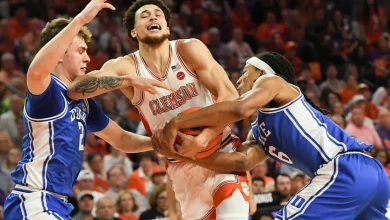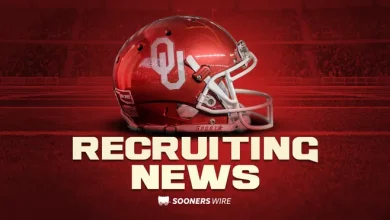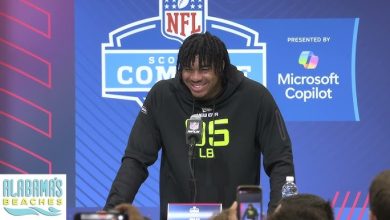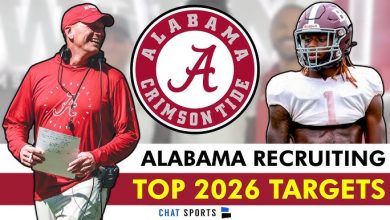Is Jerry Jones, the owner of the Dallas Cowboys, a good NFL owner? Depending on your definition of “good,”

The question of whether Jerry Jones, the owner of the Dallas Cowboys, is a “good” NFL owner is one that is often debated among fans, analysts, and even other NFL team owners. The term “good” is subjective, depending on how one defines it. Is a “good” owner someone who is successful on the field, one who excels in business operations, or one who is beloved by fans and players alike? Jerry Jones’ tenure as the owner of the Dallas Cowboys has been marked by both remarkable success and notable controversy. He has been a transformative figure in the NFL, playing a key role in shaping the modern landscape of professional football, but his approach to ownership and his leadership style have been divisive.
In this article, we will examine Jerry Jones’ career and ownership of the Cowboys from various angles to determine whether he is, in fact, a good NFL owner. We will discuss his business acumen, his leadership of the Cowboys, his relationships with coaches and players, and his impact on the broader NFL landscape. By the end, it will be clear that the answer to the question is not a simple one—it depends largely on how you define a “good” NFL owner.
Business Success and Financial Acumen
When Jerry Jones purchased the Dallas Cowboys in 1989 for $140 million, the franchise was in a period of relative mediocrity, both on and off the field. The team had not won a Super Bowl in 15 years, and its financial position was far less robust than it is today. However, over the course of more than three decades, Jones transformed the Cowboys into the most valuable sports franchise in the world, according to multiple estimates.
As of 2025, the Cowboys are worth an estimated $8 billion, making them the most valuable NFL franchise and the most valuable sports team globally, surpassing even high-profile teams like Manchester United and the New York Yankees. This is a staggering increase in value that is a testament to Jerry Jones’ ability to build the Cowboys into a global brand. His business model has been influential not only in the NFL but across all sports franchises.
Jones is credited with reshaping the way NFL teams approach revenue generation. Under his leadership, the Cowboys have become a massive commercial success, generating hundreds of millions of dollars annually in revenue. He is widely regarded as a visionary in terms of leveraging sponsorships, media deals, and merchandising opportunities. The team’s iconic stadium, AT&T Stadium, known as “Jerry World,” stands as a symbol of Jones’ business savvy. The stadium, which opened in 2009, is a state-of-the-art facility that not only serves as a home for the Cowboys but also hosts major events such as concerts, college football games, and even wrestling matches. Its construction was a significant financial investment, but it paid off handsomely, bringing in new revenue streams and cementing Jones’ reputation as a savvy businessman.
Moreover, Jones was one of the first NFL owners to embrace the power of the media and marketing. He played a pivotal role in the creation of the NFL Network and has been a key figure in negotiating lucrative television deals that have helped drive the NFL’s financial success in the 21st century. This foresight has ensured the Cowboys’ brand remains in the public eye year-round, which in turn has bolstered the franchise’s value.
On-Field Success and Super Bowl Championships
While Jerry Jones has been widely praised for his business success, his track record on the field is more complex. Under his leadership, the Cowboys achieved some of the greatest successes in franchise history, including three Super Bowl championships in 1992, 1993, and 1995. These victories helped solidify Jones’ legacy as an NFL owner and contributed to the Cowboys’ identity as “America’s Team.”
However, after the team’s dominance in the 1990s, the Cowboys have experienced significant struggles in the years since. Despite the team’s immense financial resources, the Cowboys have failed to win another Super Bowl since the 1995 season. Jones’ decision to fire long-time head coach Tom Landry and hire Jimmy Johnson in 1989 set the stage for the Cowboys’ championships of the 1990s, but his inability to retain Johnson after the 1993 season arguably set the franchise back. The Cowboys have experienced a revolving door of head coaches since Johnson’s departure, with the team struggling to find consistent leadership on the sidelines.
Jones’ influence on the football side of the organization has often been a point of contention. He has earned a reputation as a micromanager, often intervening in personnel decisions and having significant influence over the team’s roster moves, despite not having a football background. Critics argue that his meddling has hindered the team’s ability to find long-term stability at head coach and achieve sustained success on the field.
In recent years, the Cowboys have experienced moderate success, consistently making the playoffs but failing to advance deep into the postseason. The team’s inability to break through and win a Super Bowl since the 1990s is viewed by some as evidence that Jones has been unable to build a consistently competitive team in the modern NFL. Under head coaches like Bill Parcells, Wade Phillips, Jason Garrett, and Mike McCarthy, the Cowboys have shown flashes of greatness but have consistently fallen short in big games.
Nonetheless, the Cowboys have remained one of the most recognizable and successful franchises in the NFL in terms of regular-season performance and overall brand equity, even if they haven’t replicated the playoff success they enjoyed in the 1990s. Jones’ tenure has ensured that the team remains in the public eye, generating excitement and attention despite the lack of recent championship victories.
Leadership Style: Hands-On and Controversial
One of the most defining aspects of Jerry Jones’ ownership style is his hands-on approach to managing the team. Jones does not shy away from making bold decisions and has frequently inserted himself into the decision-making process. His high level of involvement has garnered both praise and criticism.
For example, Jones is known to be heavily involved in draft decisions, often having the final say on key roster moves. His famous decision to select Dez Bryant in the first round of the 2010 NFL Draft, or his choice to trade up for Micah Parsons in 2021, are examples of decisions that reflect his willingness to take risks and his strong conviction in his football judgment. However, his strong opinions on roster moves and player acquisitions have sometimes been a source of tension with head coaches, general managers, and scouts.
In particular, Jones’ relationship with his coaches has been a point of contention. His inability to get along with coaches like Jimmy Johnson and Barry Switzer has often been cited as a reason why the Cowboys were unable to maintain their championship-level success after the 1990s. The departures of those coaches marked a turning point in the franchise’s fortunes. Moreover, the Cowboys’ struggles to find a coach who can lead the team to a Super Bowl victory in the years since have been partly attributed to Jones’ interference in football operations.
On the other hand, some argue that Jones’ hands-on approach has kept the team competitive and ensured a sense of accountability at every level of the organization. By staying deeply involved in football decisions, Jones has kept the Cowboys on the radar in terms of talent acquisition, marketability, and relevance.
Relationship with Players and the Public
Jerry Jones’ relationship with players is another area where his tenure as owner is both praised and criticized. On one hand, Jones is known for treating players well and creating a family-like atmosphere within the Cowboys organization. He has been instrumental in ensuring that players receive maximum exposure and opportunities for endorsement deals. Under Jones’ ownership, the Cowboys have been able to secure lucrative sponsorship deals, and players such as Dak Prescott, Ezekiel Elliott, and CeeDee Lamb have become household names, benefiting from the exposure that comes with playing for one of the most visible teams in the NFL.
However, Jones has also faced criticism for prioritizing the business side of the Cowboys over the well-being of players. Critics argue that his focus on marketing and branding has sometimes overshadowed the team’s on-field performance. Some players have expressed frustration with Jones’ strong involvement in football decisions, and there have been reports of tension between him and various head coaches.
Moreover, Jones’ public persona has often been polarizing. He is known for his bold statements and willingness to be a constant presence in the media. While some fans admire his willingness to speak candidly, others believe his frequent public appearances and media attention detract from the focus on football. His outspoken nature has led to moments of controversy, including his comments on player protests, his support for the controversial decision to cut Josh Gordon from the team, and his stance on certain league-wide issues.









